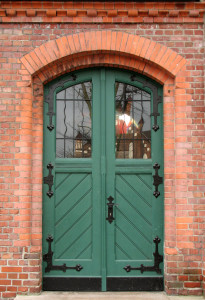Written by Dawn Rutan
I’m writing this at Appalachian Family Camp. As I was thinking about why I enjoy Family Camp, the first thing that came to mind was the opportunity to spend time with my brothers and sisters in Christ. Though none of my biological family attend camp, I am not alone there. I had a similar feeling at the recent Triennial Convention. There is a unique sense of unity and fellowship among believers in Christ.
I wonder sometimes whether the local church has lost sight of the family-hood we have in Christ. I wonder if your church is like this—after the service ends on Sunday there are a few minutes of conversation in the sanctuary or foyer, but before long each family gets into their own vehicle and goes home and they don’t see each other again until the next church-sponsored event. Aside from a few limited exceptions, there is not much effort made to reach out beyond the boundaries of the family units. Parents get so tied up with their family responsibilities that they forget that there are those who have no family around. The busyness of daily life overshadows the eternal reality of our relationships in Christ.
In the creation of the man and woman, God gave them the commission to “Be fruitful and multiply and fill the earth and subdue it” (Gen. 1:28 ESV). Throughout the Old Testament, family units were really important. In the Exodus each of the tribes had a specific place to camp each time they set up the Tabernacle. If a woman lost her husband, there were provisions for her to be integrated into his brother’s family in order to carry on the family name. Boaz is the classic example of the kinsman redeemer in the book of Ruth.
But when Jesus came, a new type of family came into being. The first glimpse we get is when Jesus is twelve years old and stays behind in Jerusalem. At Mary’s question, “Son, why have you treated us so?” Jesus answered, “Did you not know that I must be in My Father’s house?” (Luke 2:48-49). He wasn’t dissing His mother, but was pointing to a higher reality.
After He started His ministry, His family came looking for Him. His response was, “Who is My mother, and who are My brothers? …Here are My mother and My brothers! For whoever does the will of My Father in heaven is My brother and sister and mother” (Matt. 12:48-50). Jesus prioritized spiritual family over biological family, yet the church today seems to have done the opposite. Church programs tend to be geared toward families, perhaps with the intention of keeping whole families involved in the church. But the end result is that individuals are not connected to the church outside of their immediate family. And when they leave home they also leave the church.
Our culture is increasingly mobile, and individuals often don’t stay in one community for a lifetime as they once did. Unfortunately many churches have not caught up with this trend. When a new person or family comes to church, they can have a hard time really connecting with others. I’ve been at my church 20 years now, but I still often feel like the new kid on the block. Other folks have come and gone because they felt like they didn’t belong.
It is hard to change a long-standing church culture, and I don’t know what all the solutions are. I think it begins with frequent reminders that spiritual family is eternal, while biological family is temporary. Then we can build on the eternal foundation by reminding one another that we are responsible for building each other up in the faith (1 Thess. 5:11), caring for one another (1 Cor. 12:25), bearing one another’s burdens (Gal. 6:2), encouraging one another (Heb. 10:25), and stirring one another to love and good deeds (Heb. 10:24). Until we accept that responsibility and begin to live it out day by day, we won’t truly begin to experience what it means to be brothers and sisters in Christ.
© 2017 Dawn Rutan. The views stated may or may not reflect the beliefs of the pastor or leadership of Dulin’s Grove Church.



